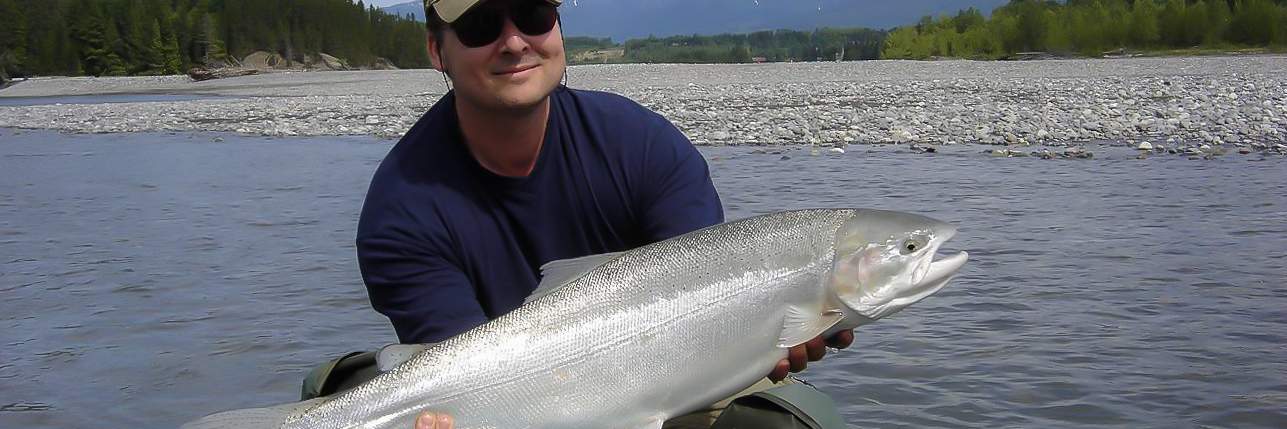

The Steelhead is a sea-run Rainbow Trout; they’re native to freshwater and ocean environments across North America and have been introduced to every other continent except Antarctica. Unlike the Rainbow Trout, the Steelhead migrate to the ocean and return to freshwater tributaries to spawn; they’re also larger and less colourful than the Rainbows. Steelhead can live for up to eleven years and, unlike Pacific Salmon, don’t die after spawning, meaning they can breed multiple times. These repeat spawning fish grow to some massive proportions and are the one’s that anglers dream of catching each year.
Steelhead varies in size, between 5lb to 25lb, but fish to over 50lb have been recorded; the average size catch for freshwater fly fishing anglers in North America is around 9lb to 10lb. Often referred to as the ultimate game fish, they are elusive and challenging and can test an angler’s patience and persistence. However, the reward is hooking into a fish, famous for its line-peeling runs and spectacular, acrobatic fighting style.
When targeting Steelhead on the fly, the best tactics include swinging with a switch or spey rod and indicator fishing with a switch or single-handed rod. Some of the popular fly patterns which work well are Intruders, Mini-Intruders, Hoh Bo Spey, Popsicle, Prom Dress, Pick Your Pocket, Leeches and some Sculpin patterns.
Below are the top destinations in the world for Steelhead Fishing.
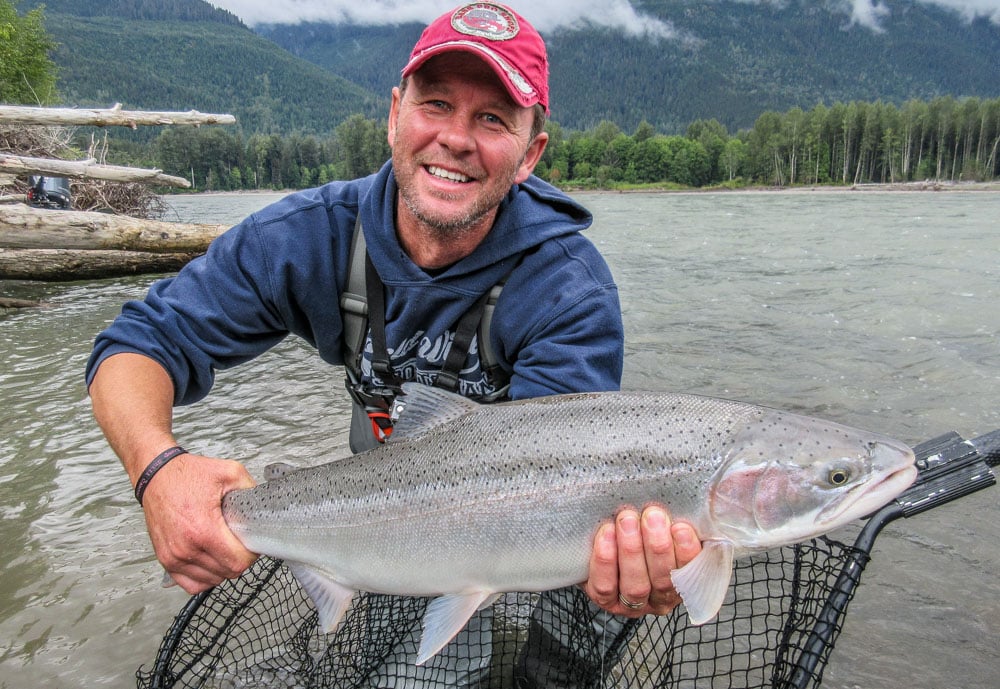

The Haida Gwaii Steelhead are some of the most potent strains of Salmon in the world and will test your tackle and angling ability to the limit. Many of the fish caught are fresh from the sea, and the neon glow from their bright silvery scales have the ability to illuminate an entire pool. These winter-run fish are well known for their strength and impressive size.
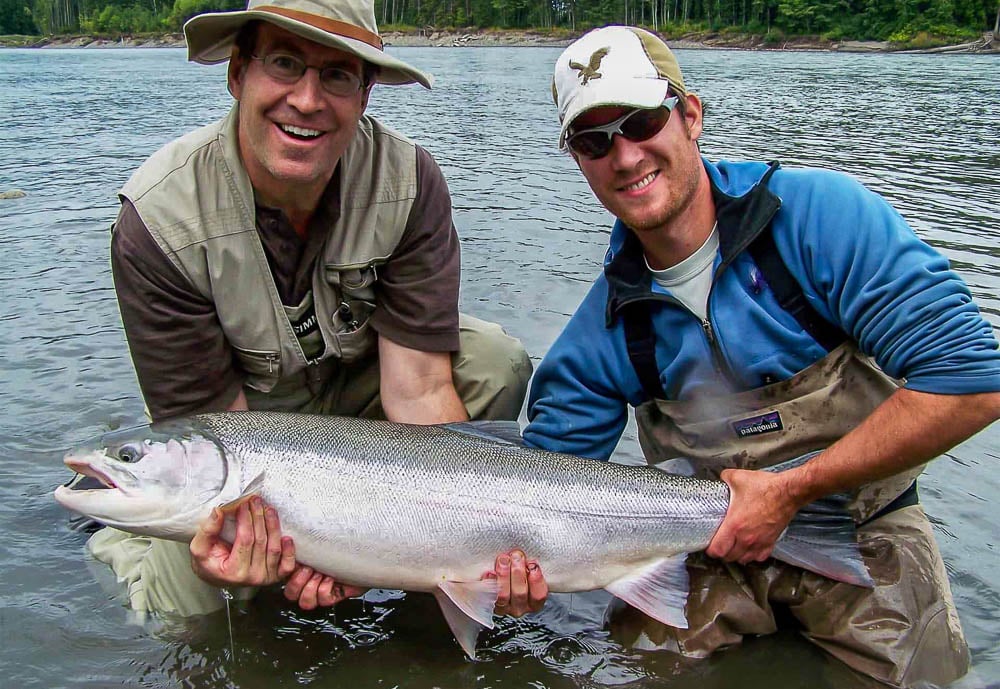

The Coho or Silver Salmon, as they’re also known, are powerful game fish, famed for their hard fighting qualities and aerial acrobatic displays. They get found in good numbers throughout the Skeena region from around the middle of August until the end of October, and our Nicholas Dean Trophy Coho package runs right through the peak summer and fall seasons.
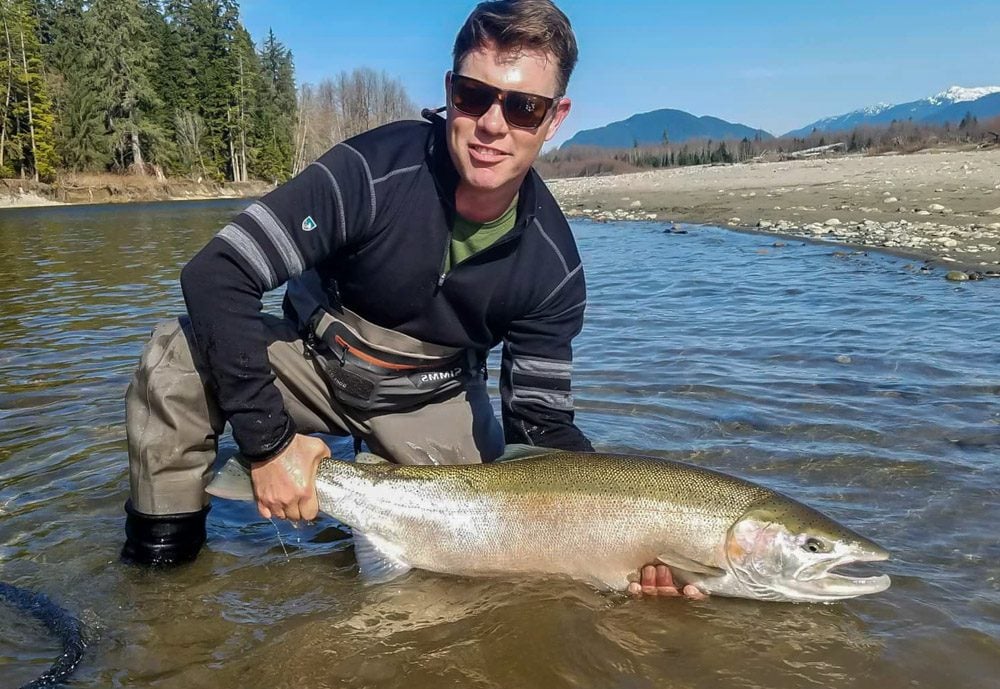

Our famed Nicholas Dean Steelhead fishing packages cover the whole of the Steelhead season in Canada, fishing on the mighty Skeena River and all of its watershed. These ultra-chrome rockets on the Skeena average between 8lb and 20lb; however, there’s always the chance of a more significant specimen and each season fish to over 20lb and even 30lb grace anglers nets.
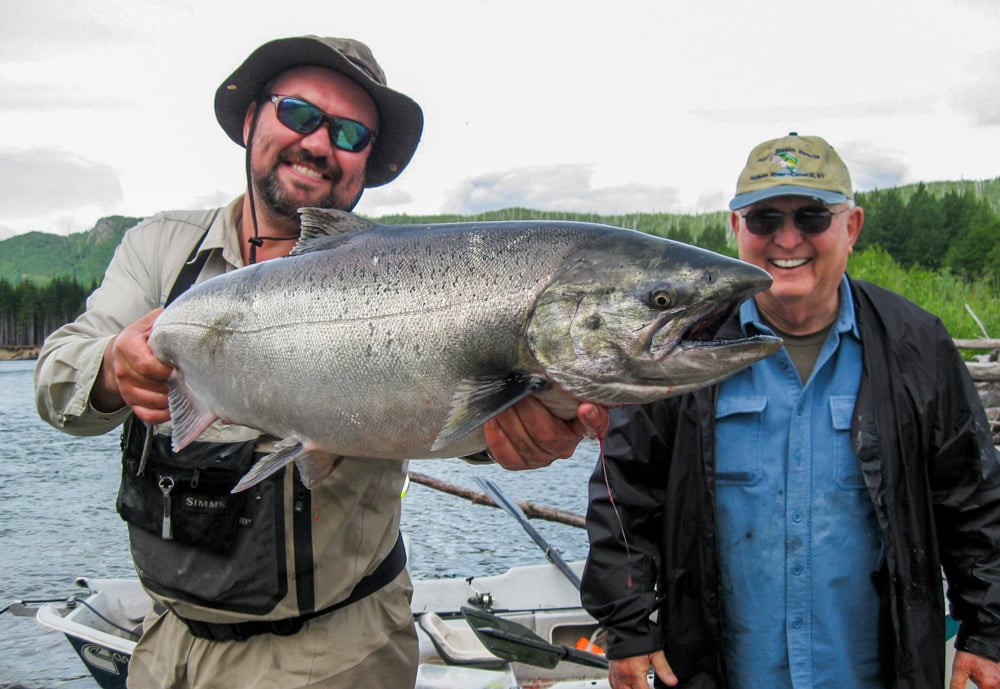

Flowing for an incredible 570 kilometres, the Skeena River is the second largest river in Canada, behind only the Fraser. Originating in northwestern British Columbia, the river and its basin is one of the most famous spots in the world for Salmon fishing. The river and its tributaries host vast numbers of migrating Steelhead, Chinook and Coho.
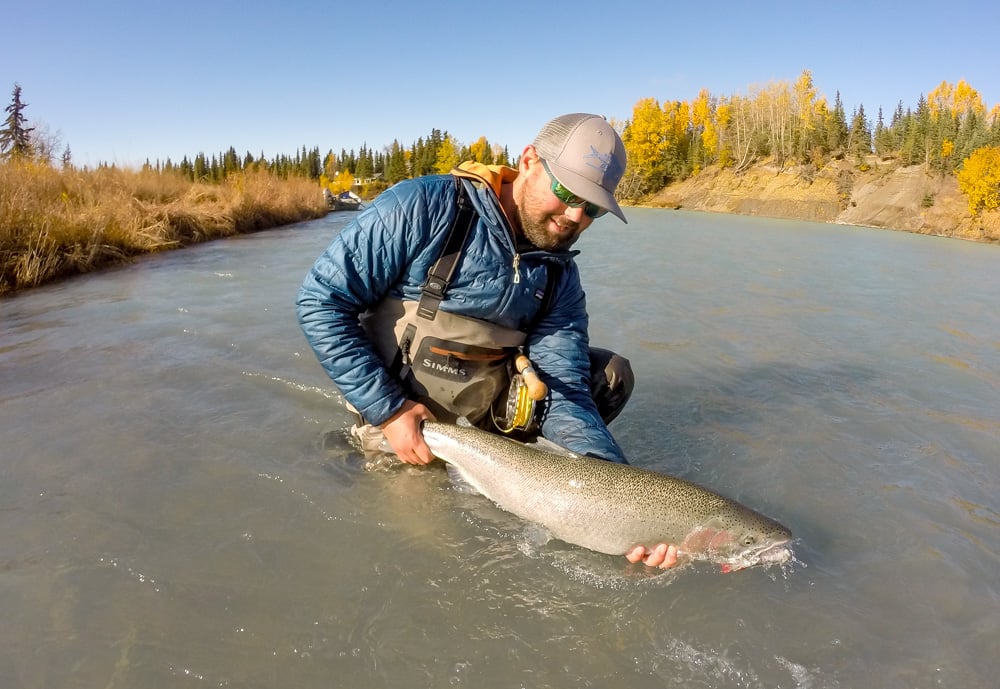

This is as close as we can get to guaranteeing you to catch Steelhead on the fly, we offer stable river conditions (a rarity for Steelhead) to eliminate those annoying lost fishing days. With our partners Alaska Steelhead Co, you will have access to not only the top guides but rivers that hold high numbers of Steelhead.
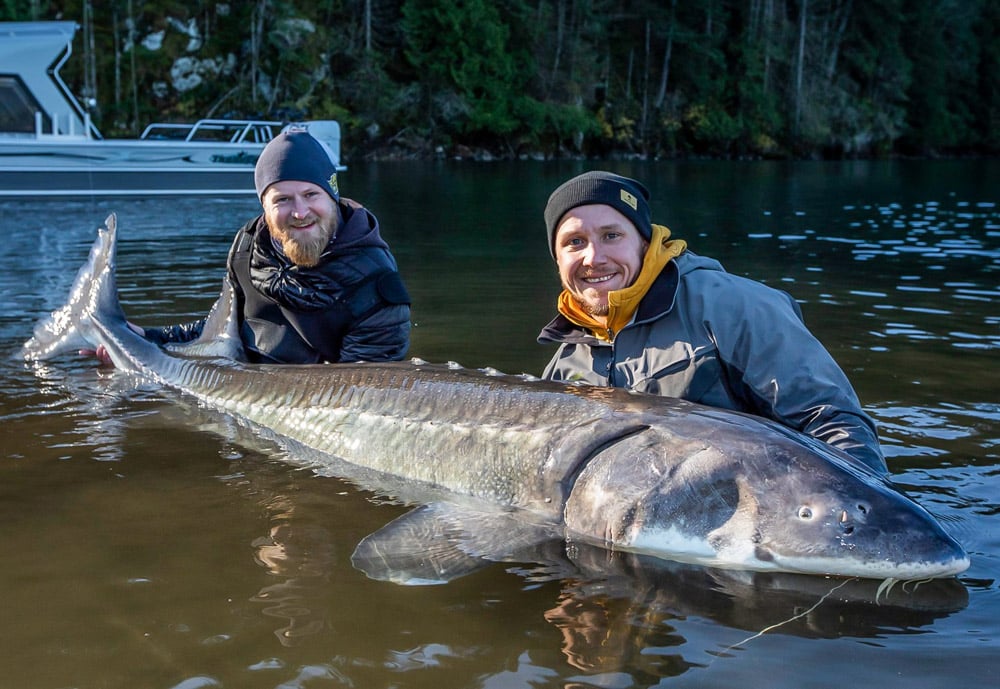

Our British Columbia Sturgeon fishing tour provides travelling anglers the chance to fish for the mighty White Sturgeon on the Fraser River. These prehistoric river dinosaurs can grow to over 10ft in length and half a tonne in weight, and provide one of the most exciting freshwater fishing challenges on the planet.
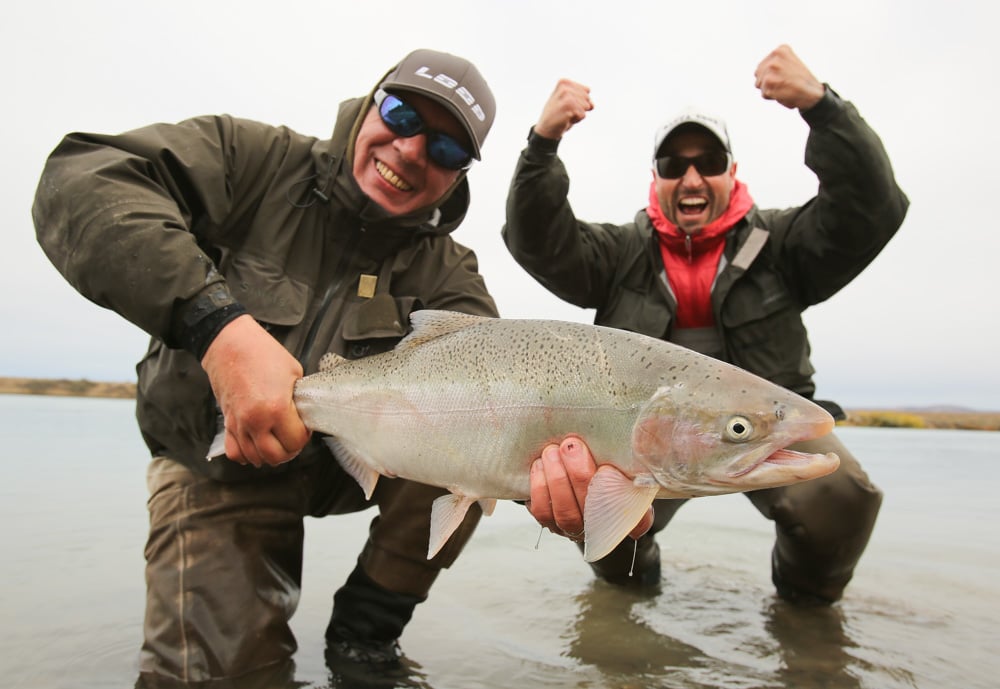

This is fishing for Steelhead in probably the world’s last great-untapped Steelhead river, in the middle of the immeasurable plains of Patagonia. Steelhead have often been credited as being one of, if not the hardest fighting migratory fish and the specimens in Santa Cruz are some of the biggest found anywhere across the globe.
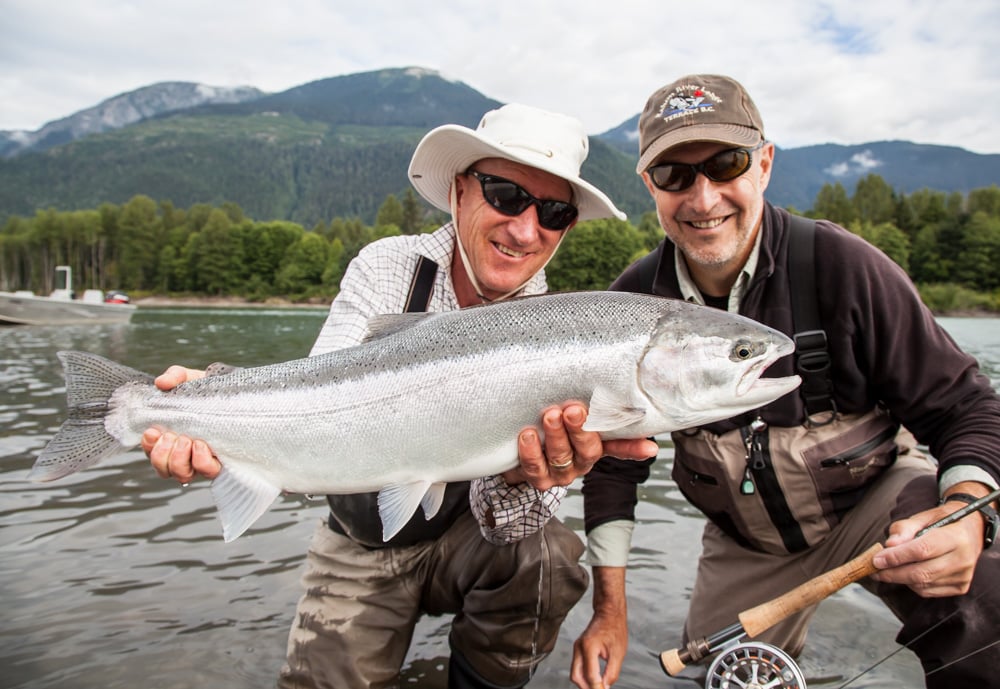

If you are looking for an incredible fly fishing holiday for Steelhead, Salmon or Trout with the comfort of having your own single room with private en suite bathroom our lodge on the banks of the Skeena River is the perfect destination. Our guided Steelhead and Salmon trips offer spectacular fishing for all levels of anglers.
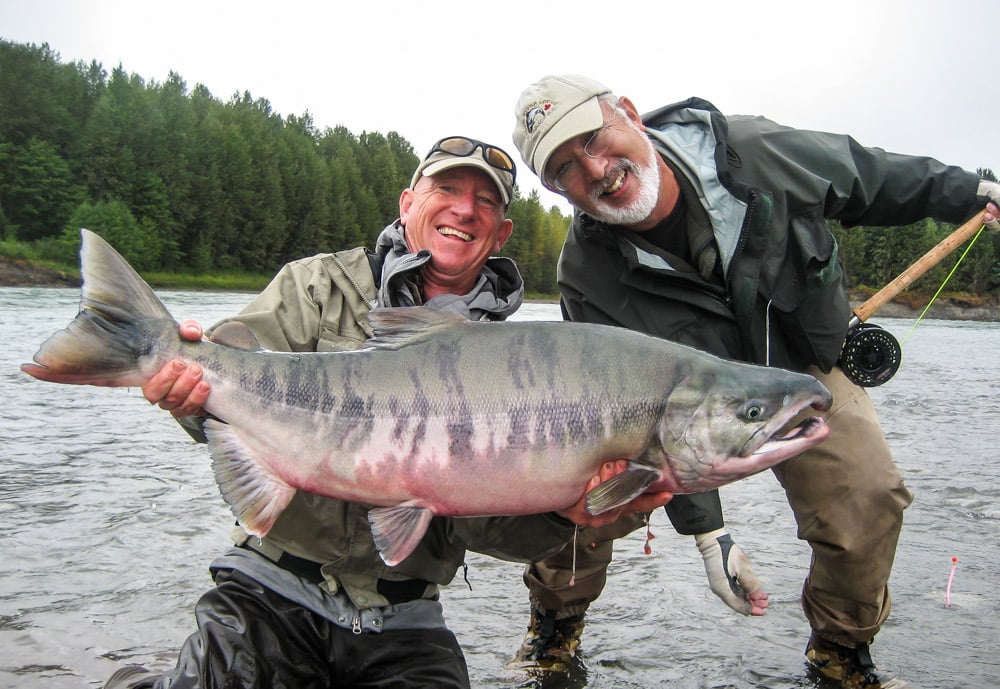

Designed for complete beginners and experienced fly fishers alike, this hosted Kalum River Lodge trip with our Sportquest Holidays host is perfect for either single anglers or small groups of friends. Enjoy the benefit of having a fully qualified host with you at all times, as well as enjoying privacy and comfort with private single rooms.
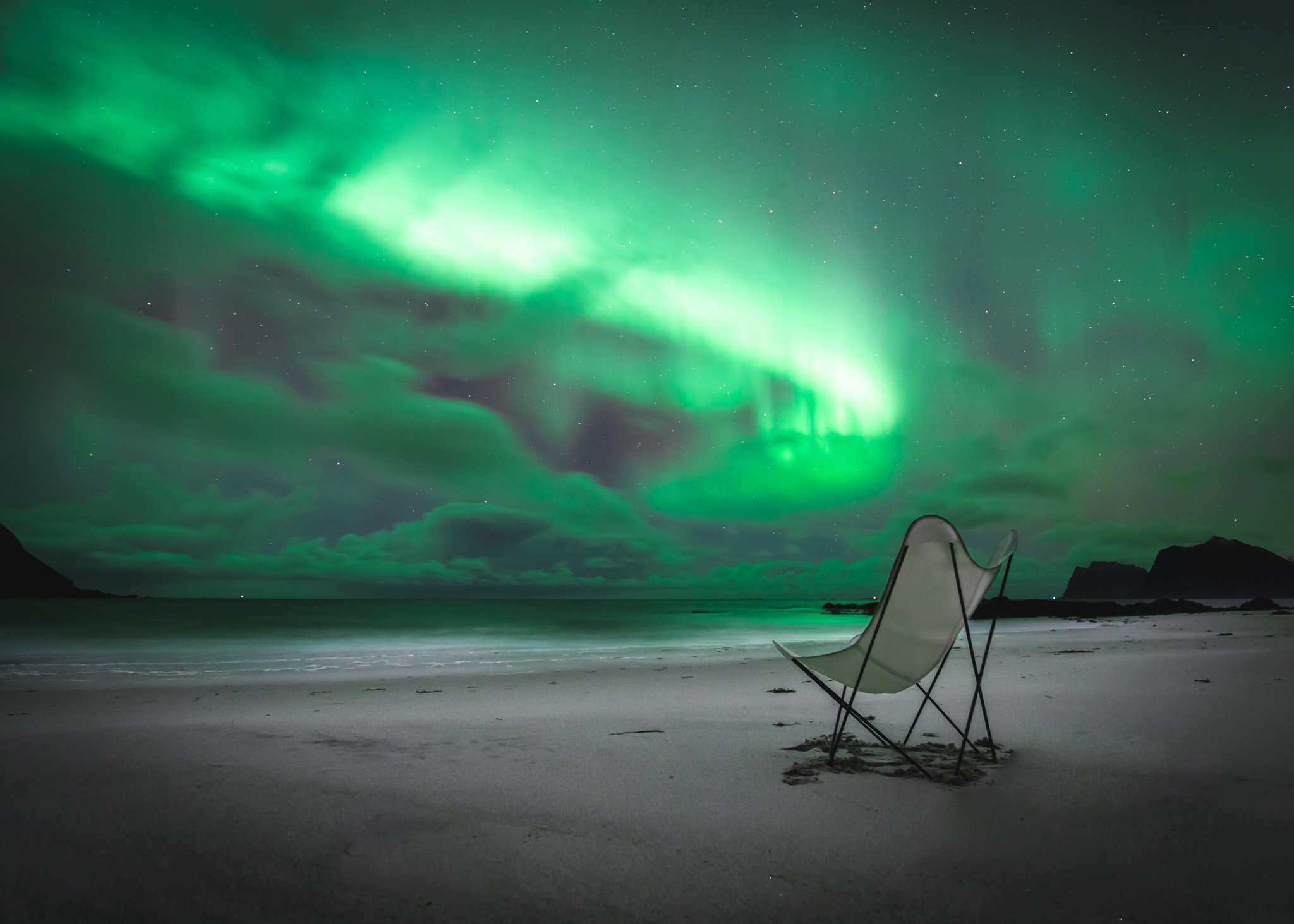

Average Customer Satisfaction Score 87%











